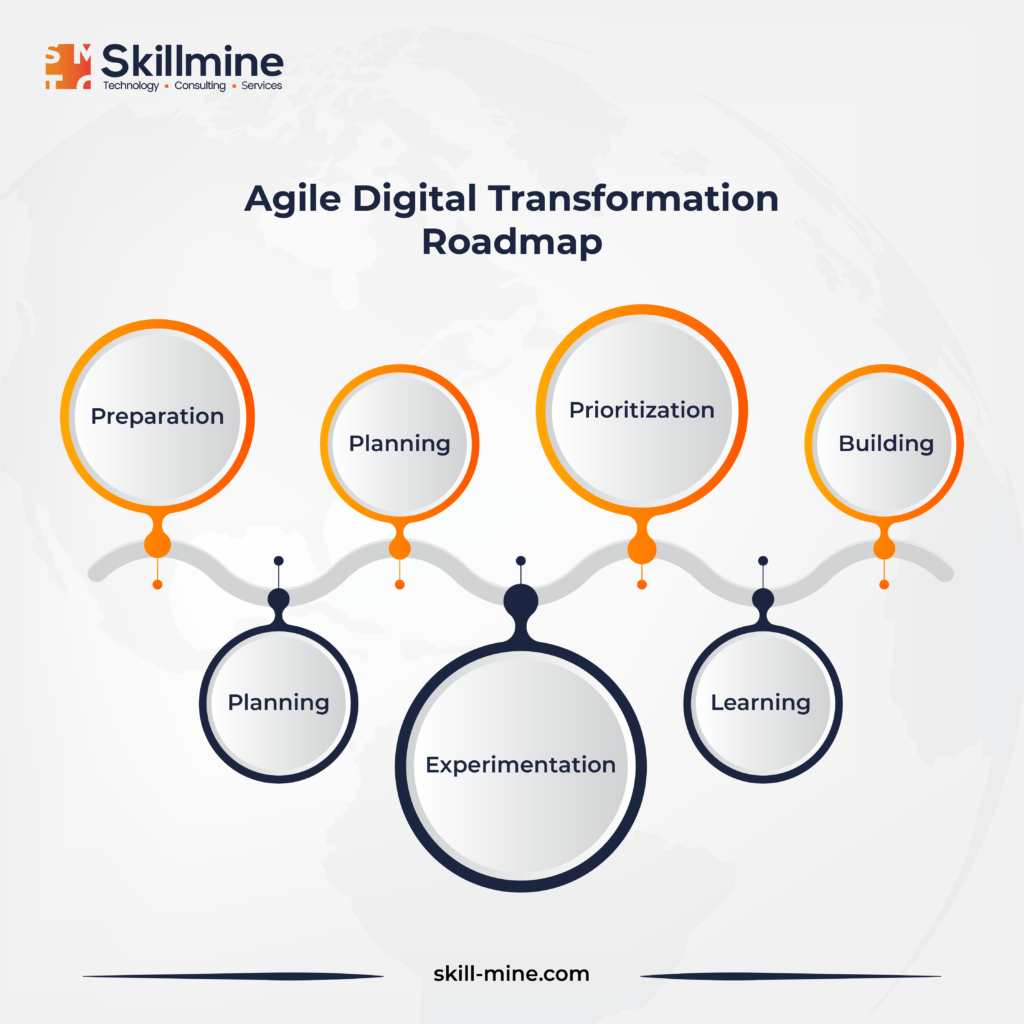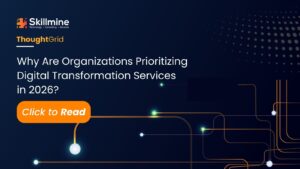Having originated in the early 2000s, Agile has emerged as a widely adopted methodology for organizing software development life cycles and project management within companies. In recent times, this approach has extended its application to the management of digital initiatives in organizations aiming for transformation in processes and models through the utilization of advanced technologies.
Agile Methodology in Digital Transformation
Agile methodology represents an iterative design process where project requirements and solutions continually evolve. Cross-functional teams collaborate in “sprints,” developing a working concept shared with end-users. Feedback guides subsequent sprints, repeating until the solution is finalized. Agile’s crucial trait lies in its encouragement of rapid, flexible responses to change. Executives can envision a digital transformation strategy aligned with business realities. Agile facilitates relevant data extraction and adaptive planning for digital transformation, promoting flexibility, speed, and continuous improvement, empowering units to be responsive and adaptive while meeting executive goals.
Establishing an Agile Environment
Agile is both a project management methodology and a mindset. Businesses must train themselves in this new thinking, fostering openness to innovative approaches among employees. The methodology supports adaptation and equips businesses for digital transformation. An agile organization breaks down into units, leverages cross-functional teams, and encourages collaboration. Agile teams prioritize flexibility and focus on shorter planning cycles.
Why Initiate Digital Transformation with Agile Methodology
Research reveals that companies adopting agile experience a 98% success rate and 60% higher profits than those following traditional approaches. With digital transformation entailing the adoption of complex software, comprehensive training, budget constraints, and evolving customer needs, embracing a simple yet effective management strategy becomes imperative. Early adoption of agile in a digital transformation project provides flexibility for adapting to changes, breaking down the process into manageable phases, learning from each stage, and aligning with set goals.
Core Principles of Agile Digital Transformation
Agile digital transformation emphasises incremental development principles and a “grow as you learn” mindset. In this approach, digital transformation services providers ensure that the clients evolve, learning from errors and prioritizing quality output over rigid adherence to rules. Aligning these principles with a digital transformation plan entails key considerations. Core principles include:
- Formulate a Transformative Vision:
Agile’s measured yet structured approach to digital transformation relies on a clear vision woven into the fabric of the company. Success hinges on a compelling digitalization vision shared across all employee levels, emphasizing true transformation to delight customers.
- Prioritize Digital Customer Engagement Development:
Contrasting top-down digitization, agile places customers at the forefront, prioritizing their needs throughout each initiative stage. This people-centric approach discards rigid rules, focusing on delivering precisely what customers require.
- Provide Safe Digital Platforms:
Security takes precedence in the agile approach, emphasizing a modular selection of tools for greater adaptability, lower costs, and enhanced security. The inclusion of security experts in agile teams ensures prioritization of security issues during the digital transformation journey.
- Take Advantage of Digital Agility:
Agile breaks down large-scale digital initiatives into time-bound sprints with clear objectives, offering a “digital agility advantage.” This adaptability allows adjustments based on market shifts or operational changes, fostering informed teamwork and progression to subsequent phases.
- Adopt Insights with Digital Data:
Agile harnesses the power of data in organizational digital transformation plans. Advanced companies continuously collect, link, and visualize data for actionable insights. Embracing a data-driven approach, agile incorporates a robust data collection and analytics system into the digital transformation plan, facilitating informed decision-making at every stage.

Benefits of Agile Digital Transformation
Improved Team Interaction and Communication: In the business realm, collaboration is paramount, particularly in the context of digital transformation goals. Agile significantly enhances collaboration through interaction, relying heavily on team dynamics. Critical components such as focus groups, meetings, and sprint review sessions play a crucial role in any agile transformation initiative, facilitating the sharing of work soliciting opinions and general feedback. Tools like sprint burndown charts effectively showcase completed work and remaining tasks, enhancing interaction and organizational capabilities.
Promotes an Adaptive Approach to Digital Transformation: While the transformation process poses challenges for traditional businesses, agile aids in gradual learning and coping with technological shifts. Workers can acquire proficiency in complex software and sought-after IT skills at their own pace, establishing agile as an effective and convenient change management method for digital transformation.
Client-centric Focus: Recognizing clients as the lifeblood crucial for profit maximization, agile’s client-centric approach is pivotal for business success. Most successful companies follow innovative practices centered around customer orientation. This highlights the importance of prioritising a customer-focused approach when handling digital transformation.
Conclusion
The agile approach to digital transformation facilitates growth alongside changes. Ultimately, regardless of your organization’s size, this proves to be the most effective path to genuine transformation. Numerous organizations currently experience the advantages of successfully implementing an agile digital transformation platform. Skillmine’s Digital Transformation Consulting Services embraces a customer-centric approach, prioritizing collaboration, honing in on the appropriate metrics, and maintaining the flexibility needed to optimize performance.





